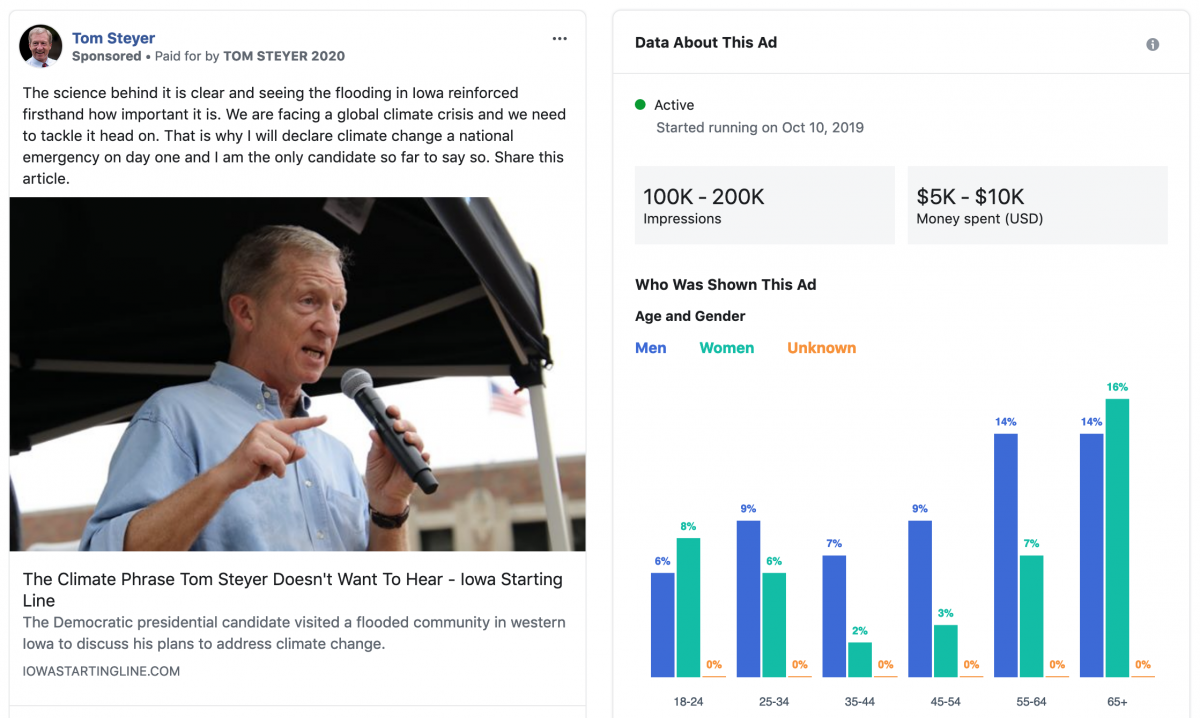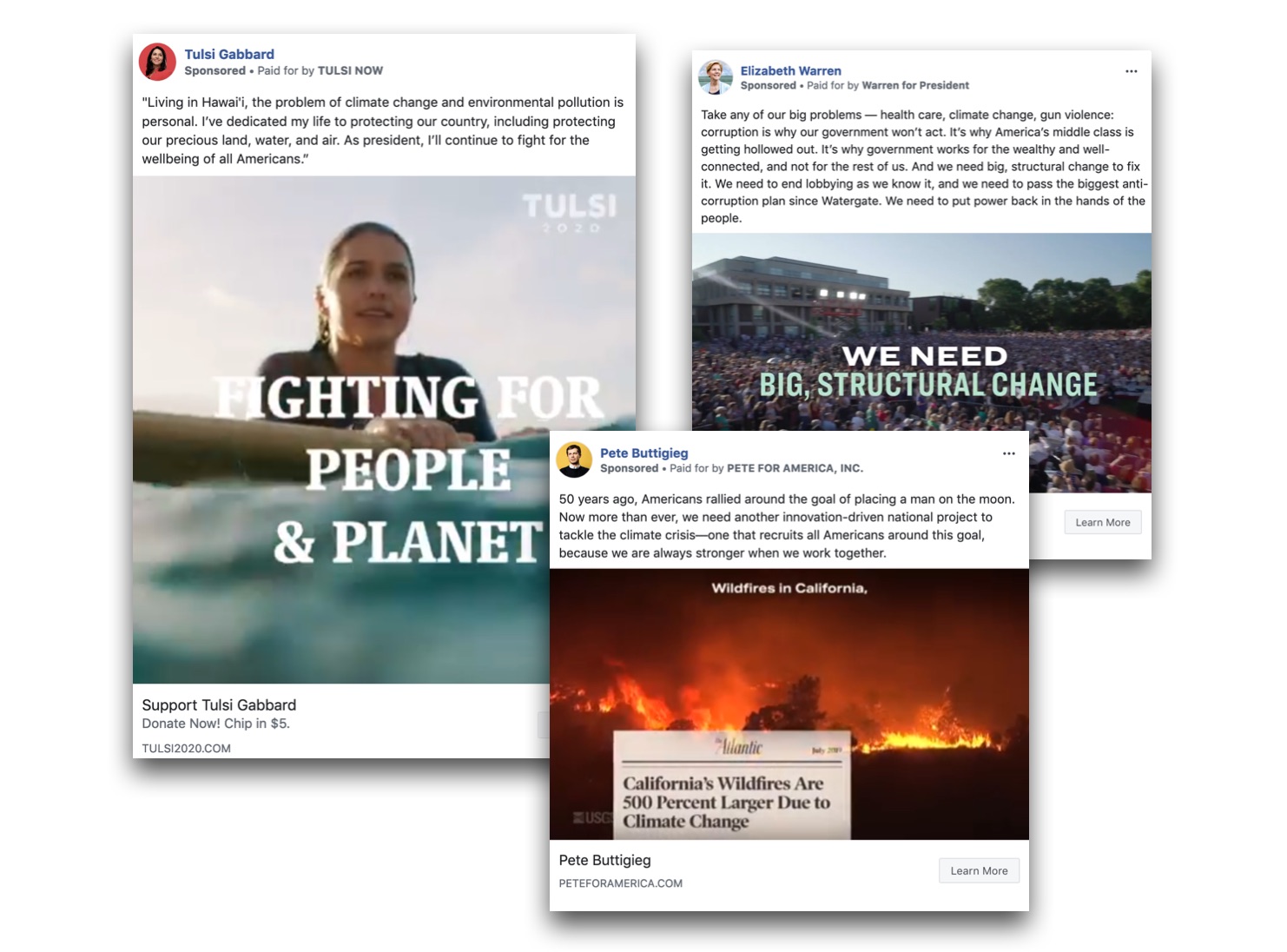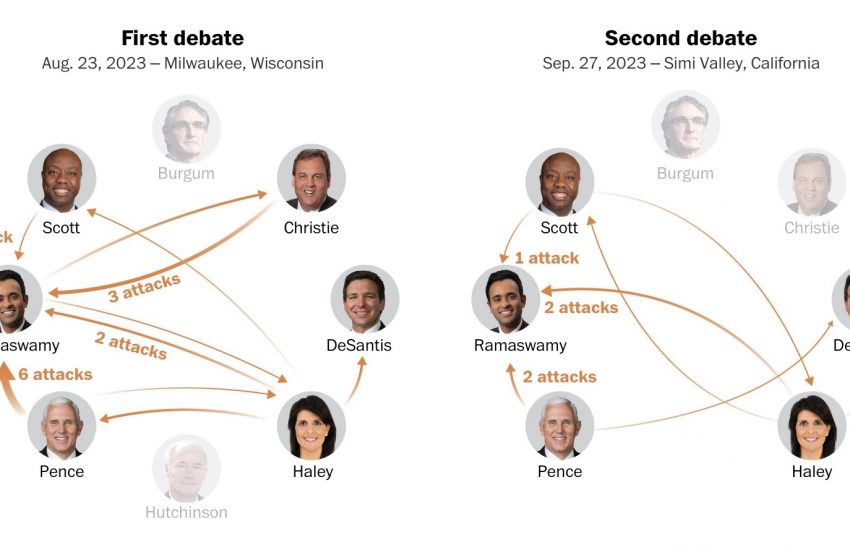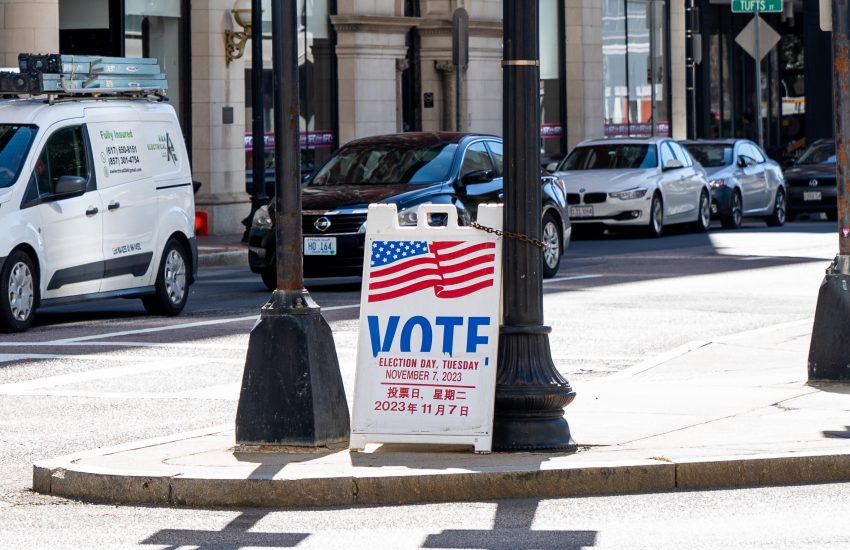Pete Buttigieg is flooding Iowa and New Hampshire with Facebook ads about his climate plan
The 2020 candidates are pouring money into online political ads and Facebook seems to be the platform of choice, with the 19 current Democratic candidates spending $32 million so far this year.
Climate change has, of course, been a hot topic this election – CNN even dedicated a day-long town hall to the topic – and candidates are routinely being asked about their plans to confront the crisis. With nearly two-thirds of Americans believing climate change is a “crisis or serious problem,” it’s clear that the 2020 campaigns can no longer ignore global warming.
So what does that discussion look like? Using the Facebook Ad Library API, we dug into political ads mentioning the word “climate” across the United States that were active in early October, 2019. Iowa and New Hampshire, the first two primary states, are unsurprisingly heavily targeted by the presidential candidates.
But only Pete Buttigieg, Elizabeth Warren, Tulsi Gabbard and Tom Steyer have run Facebook ads mentioning “climate” in those states in the last week, according to the Ad Library. Some findings from the dataset we pulled:
- Buttigieg has bought the most ads mentioning climate in New Hampshire and Iowa of those four candidates, running 105 of the 130 ads available through our query.
- Buttigieg dedicates entire ads to climate change whereas Warren lumps the issue in with others.
- Every candidate recycles ad copy and video to send to both states.
- Warren and Buttigieg favor buying ads that target New Hampshire or Iowa exclusively. Steyer and Gabbard’s ads, on the other hand, don’t exclusively target New Hampshire or Iowa but rather target Facebook users in several other states, too.
- The ads aren’t usually personalized for Iowa or New Hampshire residents with rare exceptions like Steyer’s below.

Data on the number of Facebook ads run is insightful in and of itself because, as The New York Times recently pointed out, “the advertising decisions that each campaign makes on one of the Internet’s biggest platforms offer an almost unparalleled window into their political priorities and strategies, illuminating their core supporters and providing a glimpse into their potential coalitions.”





